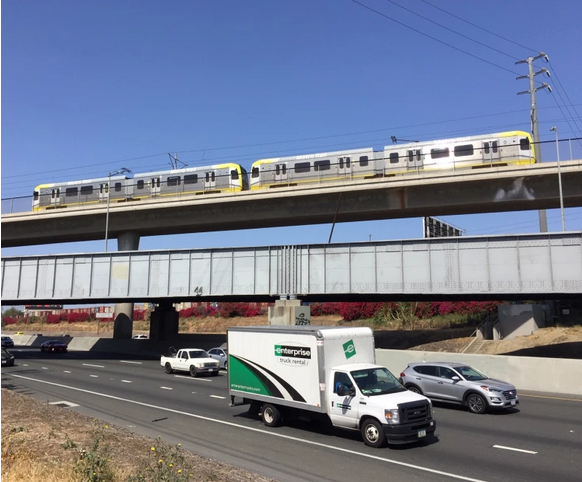
Tomorrow, the Metro board Planning and Programming Committee is expected to formally cancel the lower 710 Freeway widening project that Caltrans and Metro had sought to build for decades. The committee is expected to approve the "No Build" alternative for the 710 project, reversing a 2018 Metro board approval of a $6+ billion dollar two-lane widening - with hundreds of home/business demolitions. Metro and Caltrans are now instead touting their pursuit of a equity- and environment-focused "multimodal investment strategy" for the 710 corridor.
Metro and Caltrans are not doing this out of the kindness of its heart. The community caught them trying to get around environmental laws, and then, when federal and state agencies essentially declared the project illegal and harmful, local freeway builders reluctantly acknowledged the necessity of restarting their planning process.
Southeast L.A. County communities, organized as the Coalition for Environmental Health and Justice (CEHAJ), had long insisted on no displacement. For decades CEHAJ opposed Caltrans and Metro's widening plans, including the version approved in 2018. In late 2020, the federal Environmental Protection Agency ruled that the project didn't meet Clean Air Act laws. For months, Metro did not share the EPA's ruling publicly, but Streetsblog obtained and published it May 2021. Caltrans then paused the project. Then the Metro board suspended it, forming another 710 Freeway task force charged with reworking plans for the 710.
In a February letter to Metro CEO Stephanie Wiggins, Caltrans District 7 Director Tony Tavares formally requested that the Metro board approve the 710 "No Build" alternative:
Caltrans wishes to move forward with selecting the ‘No Build’ alternative as the LPA [Locally Preferred Alternative]. We believe that this determination is responsive to current concerns related to property, equity, and environmental/air quality impacts. Further, this determination allows the District to focus on clean transportation alternatives, the reduction of Vehicle Miles Travelled (VMT), and brings proper closure to the I-710 environmental process. As a project partner for many years, as well as the NEPA and CEQA [National Environmental Policy Act and California Environmental Quality Act] lead agency, Caltrans would appreciate Metro directing the consulting team to work with our staff to complete the Final EIR/EIS [Environmental Impact Report/Environmental Impact Statement] and Project Report.
At tomorrow's 10:30 a.m. meeting, the board committee is expected to approve an item selecting "Alternative 1, the 'No Build' alternative, as the new Locally Preferred Alternative for the I-710 South Corridor Project Final Environmental Document." If approved by the committee, then the item would go to the full board next week for final approval.
Also on tomorrow's agenda is a motion put forth by Metro Boardmembers Janice Hahn, Hilda Solis, Holly Mitchell, and Fernando Dutra that would further clarify reporting and interagency/community collaboration in coming up with a revised 710 Freeway corridor project, as well as explicitly stating, as several Metro staff have been stating at 710 meetings for the past year, that Metro adopt "Board policy that capacity expansion freeway widening will no longer be in the project."






